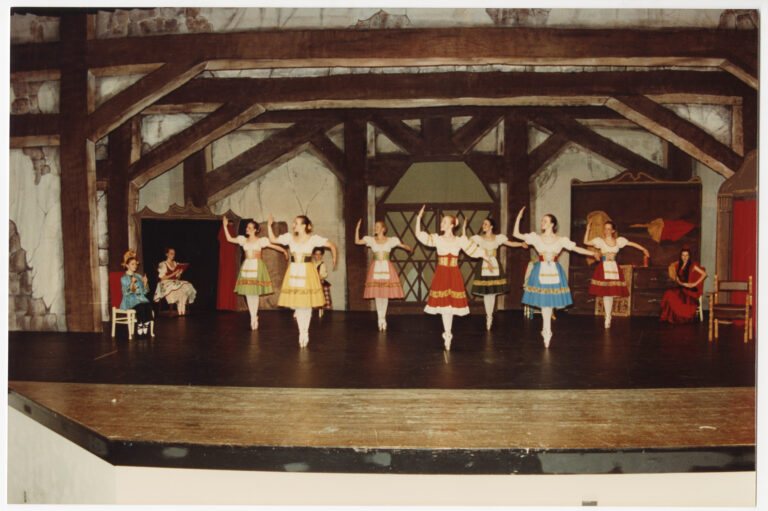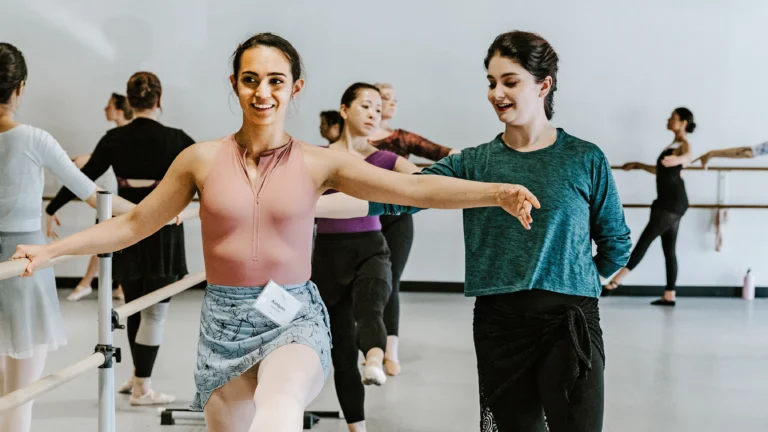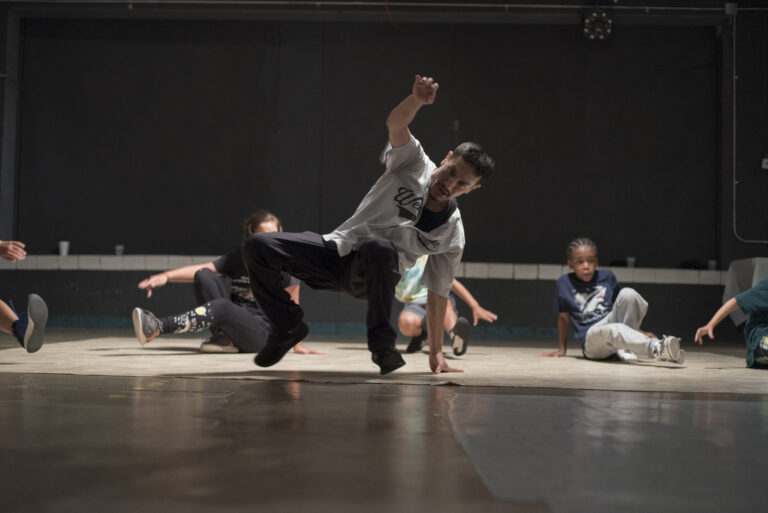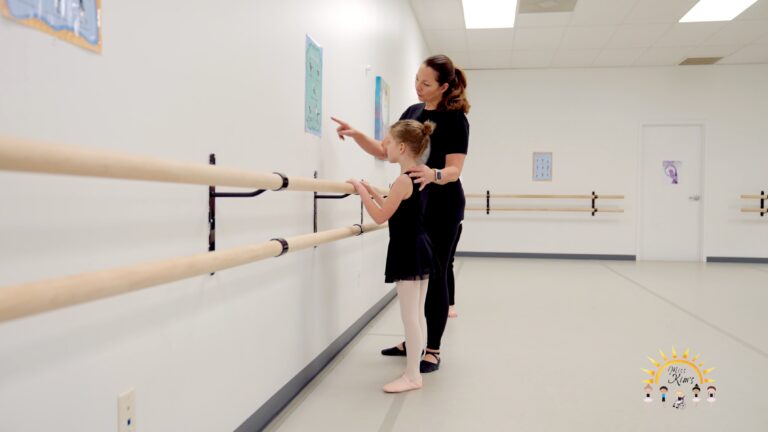
Does your studio slow down when the weather warms up? If you don’t offer a summer session, June through August can be a cash-flow challenge. One popular—and easy—strategy is to offer weeklong camps instead. We spoke to three professionals to learn how they make summer camp work.
KICK DANCE STUDIOS
Fair Haven and Rumson, NJ
Vanessa Berry, owner
Curriculum
•Weeklong morning camps that run from 9 am to 12 pm; each week covers a different genre or theme—ballet, princess camp, tap and pointe intensives—to satisfy various age groups and interests.
•One-day (three-hour) workshops arranged by age group or skill level.
•Three-week session of advanced technique clinics in the morning, grouped by level.
•Three evenings a week, the studio remains open for other classes.
Why it works The three-hour, weeklong camps are compatible with families’ summer schedules. “I find most swimming or basketball camps run one week, too, so families are comfortable with these schedules,” says Berry. “We’re in a seaside community—a mom told me she loved that time frame. She could do grocery shopping and then pick up her daughters and go to the beach.” The week-at-a-time schedule also allows families to fit classes around their vacation trips.
Flexibility is what makes the summer work: It extends to the mix of classes and rules for enrollment. Each of Berry’s two locations has multiple rooms, so any given morning, multiple camps for different age groups can go full-swing. Registration runs from February 1 until the day before camp. “The most intense time for signing up is April,” says Berry. “But if we have room, we’ll accept students the morning of the first class.”
Staffing Since teachers’ employment remains constant yet flexible, with summer hours, they are happy and loyal. “All of our staff remains busy, with 50 to 60 kids at the studio each day,” says Berry. As enrollment grows, she brings in teaching assistants and junior students.
Benefit for students “We had our biggest summer ever this year because we targeted programming to what parents want,” says Berry, who opened up the 9 am to 12 pm schedule to the senior dancers in the form of advanced technique clinics. “Everyone kept up their skills,” she says. “In fact, they gained. If I have them for three solid hours for five days, that’s 15 weeks of a regular class. They learn so much when they have that concentrated time.”
Business boost The morning schedule brought new students to the studio, including kids visiting relatives. “We now have people who return each summer just for the class,” says Berry.
 Rhythm Dance Center in Georgia offers “TWIRL Dance and Play Parties.” Photo courtesy of Rhythm Dance Center
Rhythm Dance Center in Georgia offers “TWIRL Dance and Play Parties.” Photo courtesy of Rhythm Dance Center
RHYTHM DANCE CENTER
Marietta, GA
Becca Moore and Dani Rosenberg, owners
Curriculum
•Weekly themed play parties for youngsters
•Open classes geared toward intermediate and advanced dancers. Genres—ballet, tap, conditioning, Pilates, musical theater—change from week to week. “We may post some social media and send a mass e-mail to current students,” says Rosenberg. “Some classes have eight students and some have 48. We do this twice a week and avoid holiday weeks.” Students can pay by class ($12.50) or buy a class card and get a discount: five classes for $50, 10 for $90.
•Diehard Dancer Incentive: Any student who takes 20 open classes over the summer receives a T-shirt, a shout-out on social media and a free class with a guest teacher of their choice during the year. “They’re getting better as dancers,” says Rosenberg.
Why it works The weekly change of genres for open classes means many students end up taking more than one class. Play-party themes—usually based on children’s characters, like Disney princesses—also change each week, encouraging more repeat business. “The key is changing it up every week so kids get to try new things,” says Rosenberg. “We publish themes ahead of time and don’t require preregistration for parties—they can show up and pay the day of. It’s a great time to try different styles before they commit to a class for the season.”
Staffing “I try to offer teachers two classes so they aren’t driving to the studio for just one class,” says Rosenberg. Teachers who work a special event, like a party, get a flat fee. High school–age assistants receive credit toward their tuition or competition team account.
Benefit for students The studio offers half-off summer class registration for new and returning students if they sign up by a certain date. Because requirements for themed parties are minimal—little ones can wear sneakers or socks, no dance shoes required—registration is high.
Business boost “We know our party themes and schedule in February,” says Rosenberg. “The kids see it and immediately want to preregister, which gives a kick-start to summer cash flow. When they see how fun it is, they often end up registering for fall classes.”
CENTER STAGE
Asheville, NC
Michele Lee, owner
Curriculum
•One-week summer camp themes on popular books, movies and children’s shows that will appeal to age groups 6 and under and 7 and up. Daily activities include crafts, dress-up, structured play and basic dance class. Each camp has plenty of variety to keep little ones engaged, including a photo shoot on Wednesday, water day on Thursday and an informal show for friends and family on Friday.
•Technique classes for elementary, middle and high school students to maintain and improve their skills over the summer. These classes vary in length depending on age: For ages 12 and up, they run for six weeks and include ballet, pointe, tap, jazz, acro and contemporary. Students ages 9 to 12 are offered five weeks of class in all the same genres. And 5- to 8-year-olds participate in a four-week program.
Why it works “Camps help market the studio to potential clients who may have little or no dance experience,” says Lee. A flexible payment system entices students who may not otherwise be able to commit to technique classes. “We offer a full pass for all classes, or students may pay a drop-in fee. The full pass offers a significant discount.”
Staffing Faculty earn their regular hourly rate for technique classes. Theme camp instructors get a weekly rate.
Benefits for students Campers receive a keepsake T-shirt and photo at Center Stage, along with daily take-home crafts. “We have several little ones who attend multiple theme camps over the summer,” says Lee.
Business boost Reducing office hours during the summer months cuts down the operating budget—savings that pay for the studio to remain open and keep faculty working.



